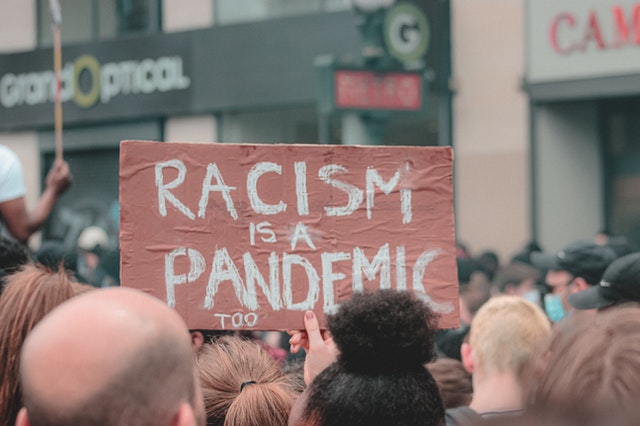
AS the country tries to upend the divisiveness stemming from months of civil unrest and a global pandemic, local leaders in Los Angeles County are unpacking the increased hate against the local Asian American and Pacific Islander (AAPI) community.
The newly minted Civil Rights and Human Rights Department (CRHRD) was established in the City of Los Angeles in early 2020 before the pandemic even began.
The phenomenon of hate crimes spans races, ethnicities, gender and sexual orientation. On Oct. 23, the county’s Commission on Human Relations released the annual Hate Crime Report for 2019, and although reported incidents only jumped by one (523 incidents in 2018 and 524 incidents in 2019), the report doesn’t factor in the incidents stemming from the COVID-19 pandemic.
“This is a city of belonging, a place where our strength is in our people and people who come from all over the world who have brought their values and voices to this global city and we will always stand up for our people and stand strong against bigotry and discrimination,” LA Mayor Eric Garcetti said in a webinar hosted by KACIE Strategies on Thursday, Oct. 29.
One hate crime tracker called Stop AAPI Hate from the non-partisan group Asian Pacific Policy and Planning Council (A3PCON) tracked more than 2,583 reported hate incidents against AAPIs from March to August; more than 800 of those attacks occurred in California.
These attacks range from cyber bullying and harassment, verbal abuse in public (most of which were reported in grocery stores and restaurants) or, in few but unfortunate cases, violent attacks.
Roughly 1 out of 7 targets of these incidents were people under the age of 20, and the report also found that Asian American women were 2.4 times more likely to be discriminated against.
Deputy Chief Blake Chow of the LA Police Department pondered on the reasons as to why AAPIs are receiving intense hostility and blame for the coronavirus as well as the overall cultural divisiveness percolating throughout the city, county, state and country.
“I think, unfortunately, we as a society have a history of blaming other groups for problems, and that’s easy because that’s the easy way out. Instead of coming together and tackling a problem as a community and looking for a solution, it’s much easier to blame another community,” Chow said.
Chow noted that currently, there are 14 anti-Asian hate crimes reported to the LAPD “for the full quarter of 2020.” So when compared to the number of incidents reported to the A3PCON tracker, the gap shows that these kinds of incidents — whether they are violent, verbal or from behind a screen — are severely underreported.
Moreover, it’s important to note that these hate incidents are the ones that were reported to authorities or to community organizations and don’t factor in incidents that may have happened but weren’t reported.
“We have our work cut out for us and we have to, as a group, need to take a stand, that this type of behavior is not tolerated, and we have to encourage people to report [these incidents] so that we can get a general picture as to what the problem is and how we can address the problem head on,” Chow said.
LA City Councilmember David Ryu of the 4th district spoke about the Asian American experience and the history of discrimination faced by AAPIs throughout the decades. Ryu, who is Korean American, condemned President Donald Trump’s and his cohorts’ dangerous language regarding the COVID-19 pandemic.
As told by numerous leaders to the Asian Journal, Trump has spent the better half of the year referring to COVID-19 (which, by its nature, is not inherently associated with any one ethnicity or race) as the “Chinese virus” or the “kung-flu,” terms that put up a false association between the Chinese (and Asian) community and the virus.
“These figures should be shocking to all of us, but it comes to no shock when the highest leader of our land is spewing hateful rhetoric,” Ryu said, adding that LA should “not be deterred by hurdles of hatred and ignorance.”
“With a president who’s given a green light to race it to attack the AAPI communities with xenophobic terms, it’s no wonder there’s been an exponential rise in hate against the AAPI community locally and across the nation,” said Filipina American Abigail Zelenski, attorney and one of the commissioners from the CRHRD.
“Since the onset of this pandemic, there’s been a documented increase in the number of incidents against Asian American and Pacific Islanders involving racist slurs spawning anti-immigrant nativist bullying and, unfortunately, even unprovoked violent attacks,” Zelenski added.
Though the 2020 election is on everybody’s minds (as of press time, the election results have yet to be counted), many voters are hinging the future of the AAPI community on whoever is elected (or, re-elected) President of the United States.
But racism, whether it is targeted at AAPIs or any other minority, doesn’t start or stop at an election, as previously stressed by AAPI community leaders throughout the 2020 election cycle.
But nevertheless, Manjusha Kulkarni, executive director of A3PCON and a formidable figure in the fight against AAPI hate, noted that voting in the election is something everybody can do in a year where it feels like life is out of control.
“We have an opportunity in what is the most critical election of our lifetimes to address what’s happening and to prevent it from happening, and we know a lot of our API community members have been sitting on the sidelines in past elections,” she said.
Quoting the popular Twitter user Angry Asian Man, Kulkarni added, “Not voting is like essentially going to a restaurant and paying for the food and letting someone else pick for you. We wouldn’t let anyone do that for us as consumers. We shouldn’t let others choose our cultures as citizens of this great country.” (Klarize Medenilla/AJPress)





